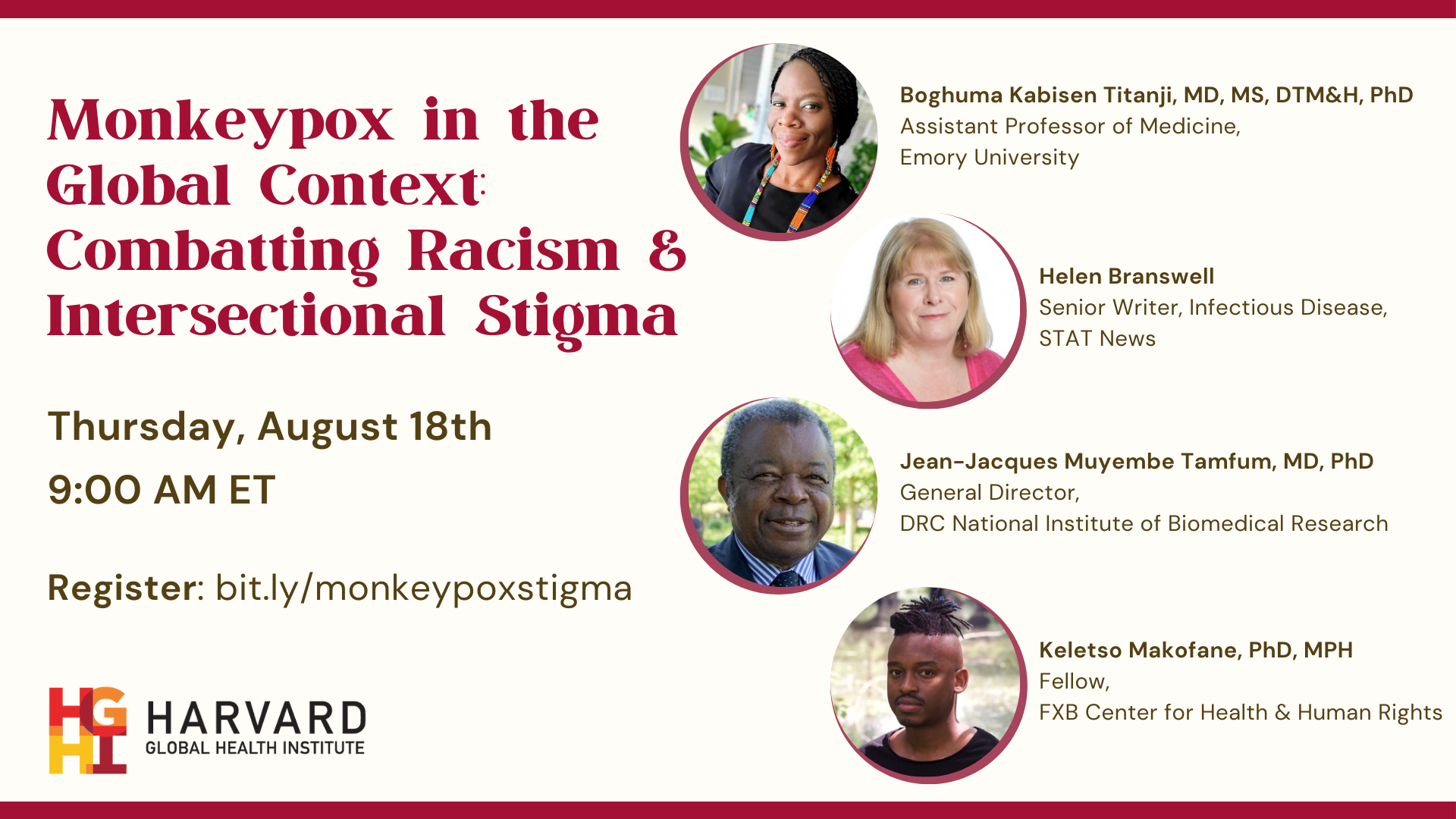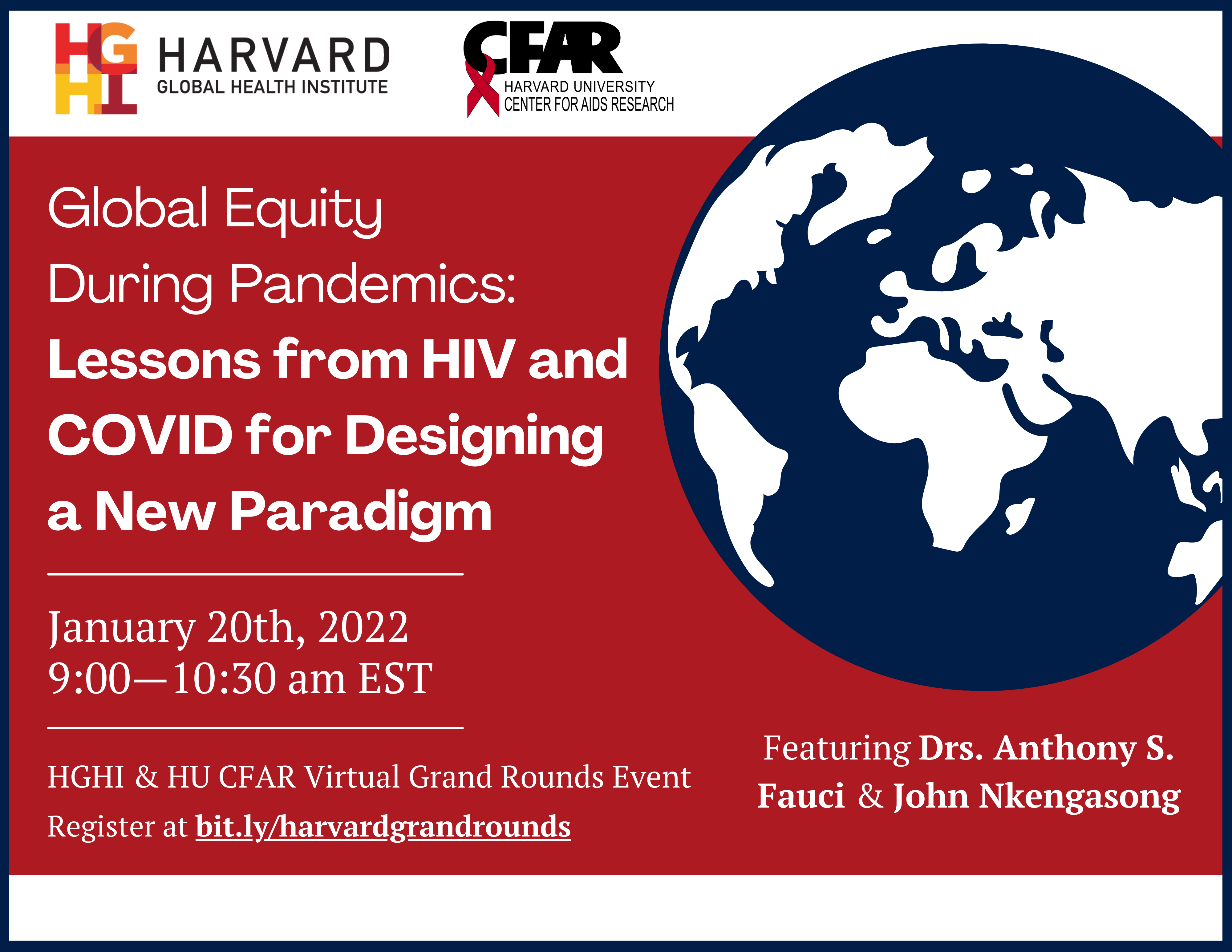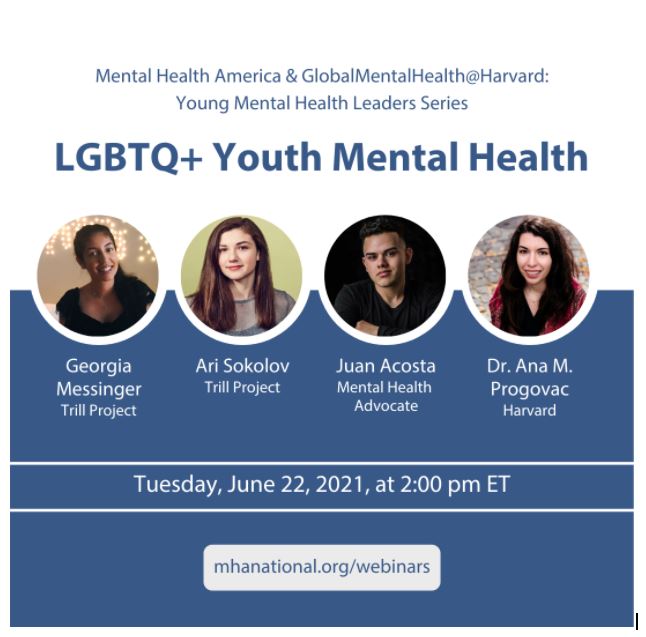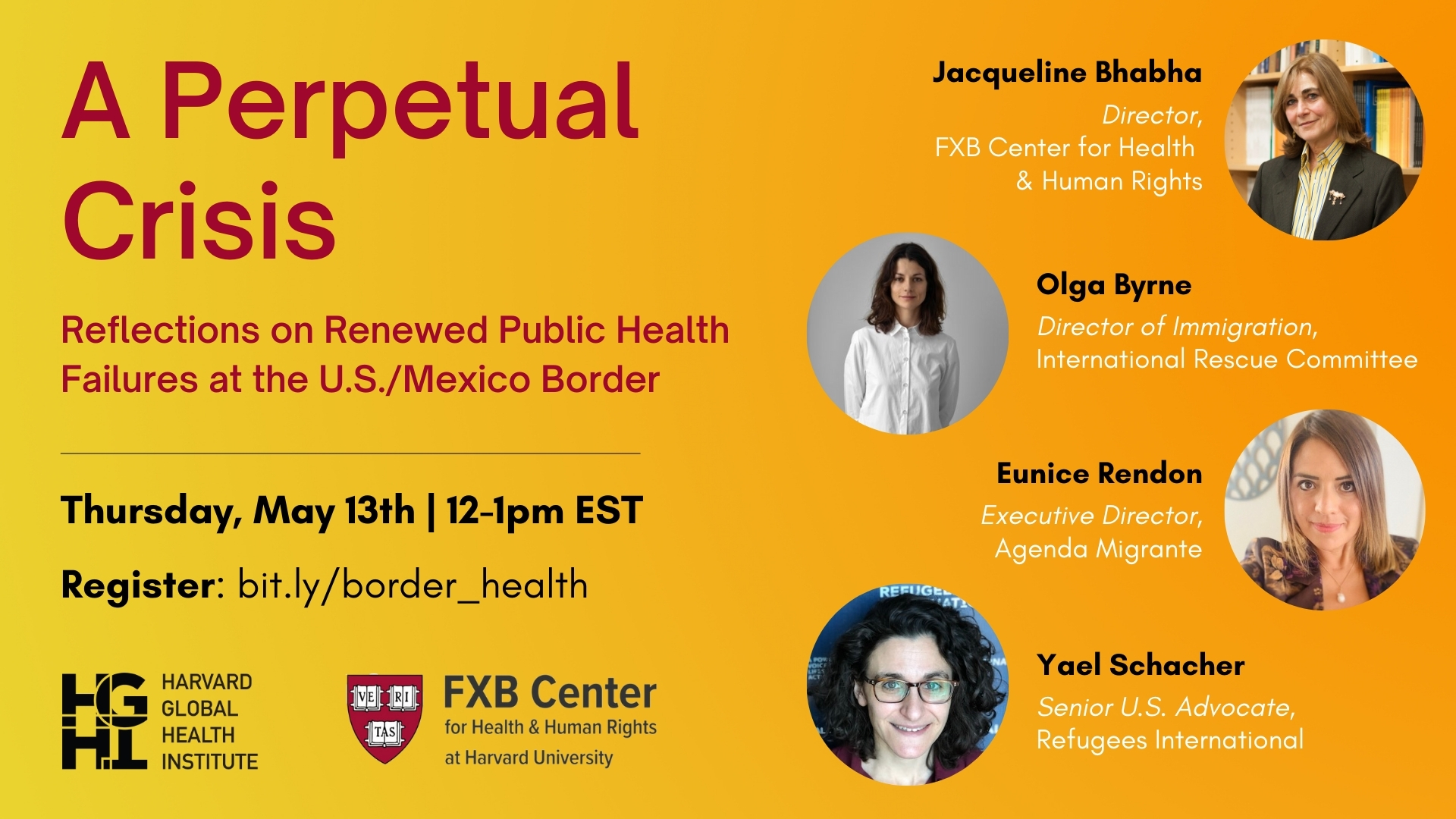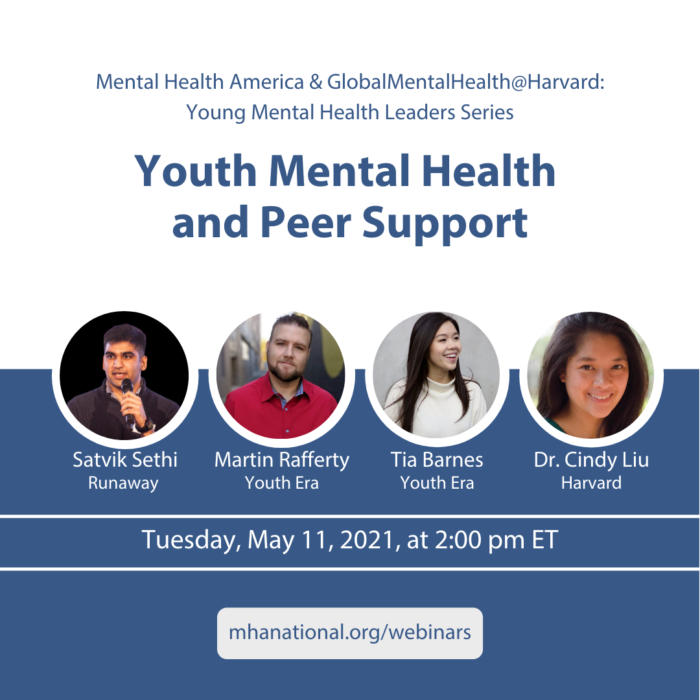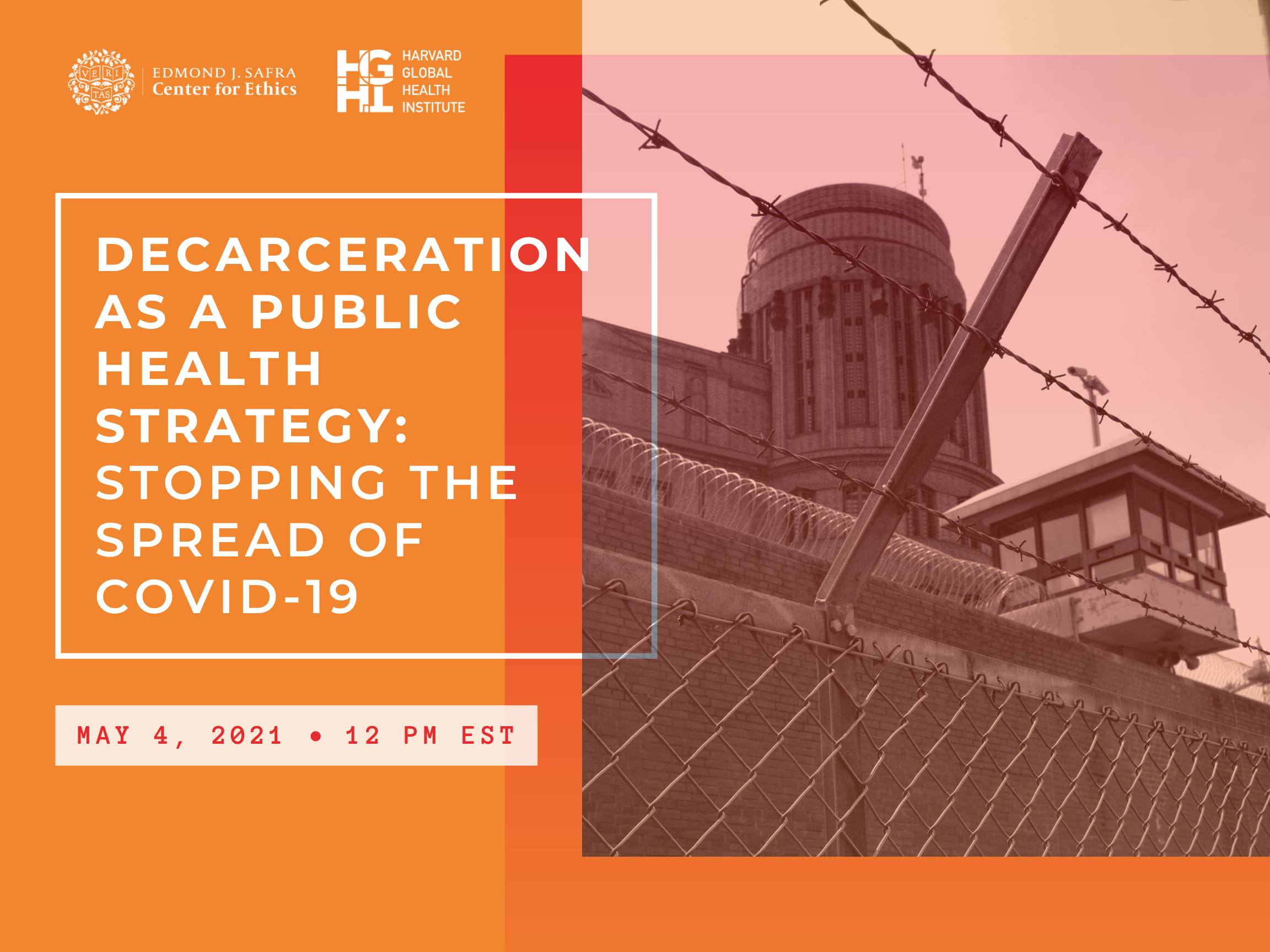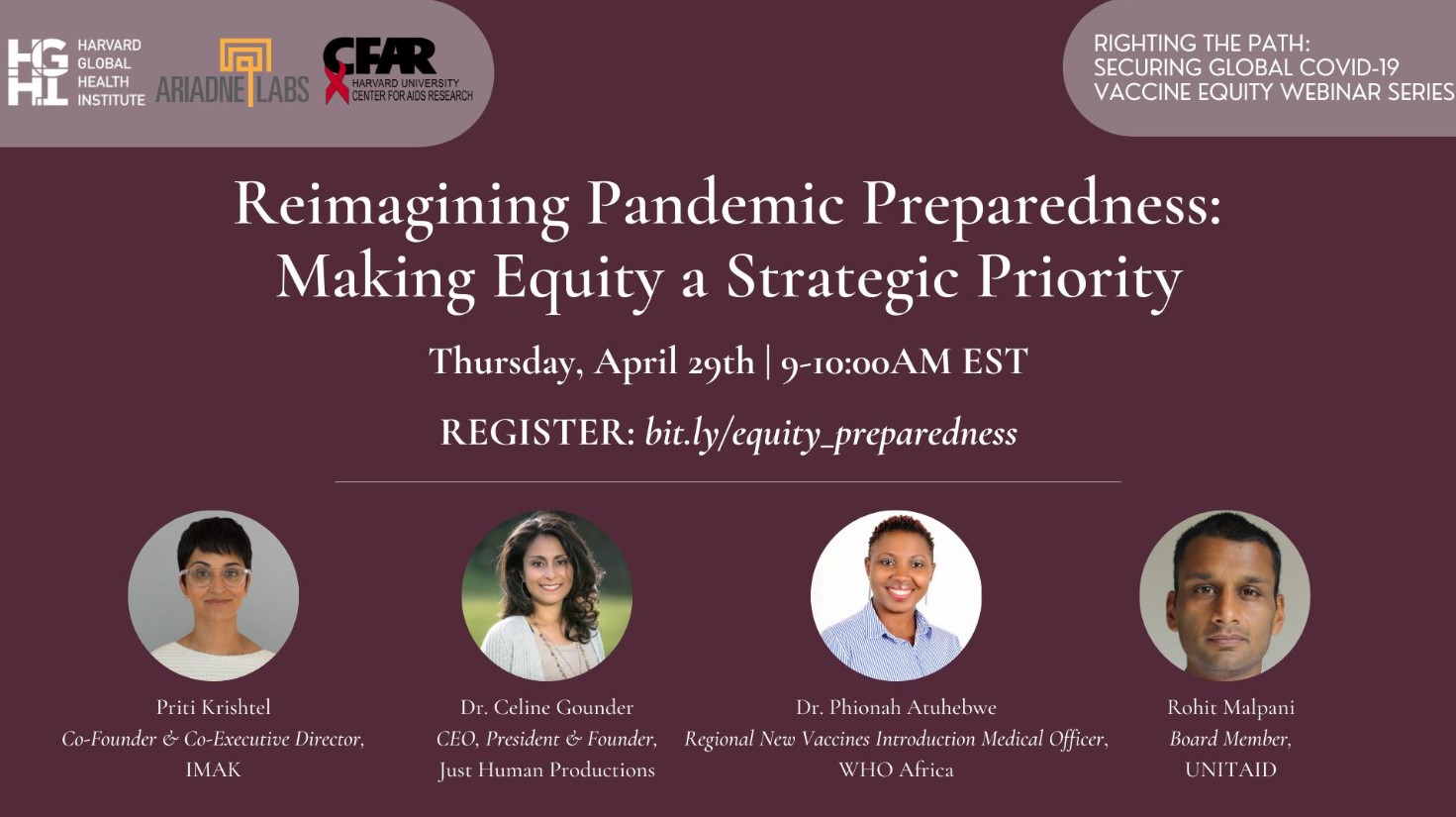COVID-19 Crisis in Prisons, Jails, and Detention Centers: Historical Perspective and Global Context is the first event in a new series hosted by the Harvard Global Health Institute in partnership with Harvard’s Edmond J. Safra Center for Ethics. This webinar will bring together a diverse set of panelists to address the current state of the COVID-19 virus in places of detention and incarceration around the world, and discuss how historical contexts for present-day carceral conditions, like overcrowding, and current practices, such as solitary confinement, have enabled the virus to spread. By critically examining the history of global carceral systems, we aim to highlight how deliberate design has exacerbated harm to this population, reinforcing inequality and discrimination, and thwarting efforts to respond to the virus.
REGISTER HERE Speakers:
Keynote Speaker & Panelist: Bruce Reilly Bruce Reilly, is Deputy Director of both VOTE, and Voters Organized to Educate. He is a writer, and founding member of the Formerly Incarcerated, Convicted People and Families Movement (FICPFM). Bruce provides expert analysis on discrimination in employment, housing, and voting rights. Originally born into foster care, he found his identity as a young jailhouse lawyer for 12 years before his parole, and a 2-hour bus ride to a minimum wage job. Bruce put his knowledge to work by joining Direct Action for Rights & Equality in 2005, and played a vital role in passing significant criminal justice reforms, such as the restoration of voting rights, eliminating mandatory minimums, statewide Ban the Box, the Good Samaritan Overdose Prevention Act, unshackling incarcerated pregnant women, and probation violation reform. In 2011, Bruce moved to New Orleans, team up with VOTE, and enroll in Tulane Law School, despite having no undergrad degree, and graduated in 2014. Bruce co-founded Transcending Through Education Foundation (TTEF) with two friends who also entered prison at a young age, and earned law degrees after being released. He is the author of “Communities, Evictions, and Criminal Convictions,” a foundational report on public housing, and “The Racial History of Felon Disenfranchisement in Louisiana,” which served as a key building block to VOTE v. Louisiana and the re-enfranchisement of 40,000 people, including himself. Bruce serves on the board of All Square, a reentry/restaurant program in Minneapolis; the National Clean Slate Clearinghouse Advisory Committee; Steering Committees for Unanimous Jury Coalition, Louisianans for Prison Alternatives, Power Coalition; the IRB for American Institutes of Research; and advisory board of Prison Policy Initiative. Bruce is currently a Robert Wood Johnson Foundation Interdisciplinary Research Leader, and has also worked as an artist, lighting designer, DJ, and theatre director.
Moderator: Salmaan Keshavjee MD, PhD, ScM
Salmaan Keshavjee MD, PhD, ScM, is Professor of Global Health and Social Medicine at Harvard Medical School and the Director of Harvard Medical School’s Center for Global Health Delivery. He is also a physician in the Division of Global Health Equity at Boston’s Brigham and Women’s Hospital, where he is Associate Professor of Medicine.
Dr. Keshavjee is a leading expert in tuberculosis treatment and the anthropology of health policy. He is the author of Blind Spot: How neoliberalism infiltrated global health. He has worked extensively with the Boston-based non-profit Partners In Health (PIH) on the treatment of multidrug-resistant tuberculosis (MDR-TB). Over the last 20 years, Dr. Keshavjee has conducted clinical and implementation research on MDR-TB in Russia, both in the prison and civilian sectors. He was Deputy-Director for the Partners In Health’s health programs in Lesotho (2006-2008), launching one of the first community-based treatment programs for multi-drug resistant tuberculosis/HIV co-infection in sub-Saharan Africa. More recently, he has been working with Advance Access & Delivery, a non-governmental organization for which he is a co-founder and clinical advisor for projects in India and South Africa. His research has resulted in a number of clinical and policy manuscripts on TB and MDR-TB, which have had significant clinical and policy impact.
Dr. Keshavjee is the Chair of the Steering Committee for the Zero TB Initiative, a global coalition of implementers, policy-makers and activists working to create islands of tuberculosis elimination in a number of countries worldwide. He was the Chair of the World Health Organization/Stop TB Partnership’s Green Light Committee for Multidrug-resistant TB from 2007-2010. He has been involved in a number of global guidelines for tuberculosis treatment including at the World Health Organization and the American Thoracic Society. During the Covid-19 epidemic he has been involved with the work of the START coalition, committed to using layered technologies to keep public spaces safe from airborne disease transmission.
Panelists:
Dr. Rosemary Mhlanga-Gunda
Dr. Rosemary Mhlanga-Gunda is a public health specialist and researcher with over 30 years of experience. Her broad experience lies in health systems research, design, implementation, monitoring and evaluation of public health interventions inclusive of HIV/AIDS, maternal, child and adolescent health. She has conducted evaluations in public health interventions within Zimbabwe and the SADC region. She currently works as a researcher and technical advisor within the Faculty of Health and Medical Sciences, Family Medicine, Global and Public Health Unit, Centre for Evaluation of Public Health Interventions, University of Zimbabwe. In the past seven years she has mainly focused on research on health of people in penal institutions within the Southern African Region. She is a reviewer for the International Journal of Prisoner Health. In 2020 she was appointed a committee member for the World-Wide Prison Health Research and Engagement Network (WEPHREN) Scientific Conference but this was postponed to a date yet to be announced due to Covid-19 global pandemic. Charlene J. Fletcher
Historian, educator, and writer, Charlene J. Fletcher, is the Emerging Voices Postdoctoral Research Associate in Slavery and Justice at Brown University. She holds a Ph.D. in History from Indiana University, specializing in 19th century United States and African American history and gender studies. Prior to attending IU, Charlene led a domestic violence/sexual assault program as well as a large reentry initiative in New York City, assisting women and men in their transition from incarceration to society and also served as a lecturer of Criminal Justice at the City University of New York. She currently serves as National Publications Director for the Association of Black Women Historians (ABWH).
Marcelo Bergman
Marcelo Bergman is a Professor of Sociology and Criminology at the Universidad Nacional de Tres de Febrero (UNTREF) in Argentina and writes on a variety of issues related to crime, public security, illegal drugs and public policies in Latin America. Other areas of research include taxation, compliance and rule of law in the region. Bergman is particularly interested in evidence-based research on criminal justice, citizen security and illegal drug polices in Latin America, with a focus on sound data collection. Over the past two decades, he has dedicated much of his work to developing data sets for the analysis of these social issues.



